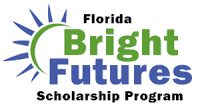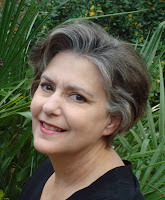foreward by Jill Lingard
 Who at UF hasn’t been positively impacted by Lynn O’Sickey in some way over the years? While her position may be in UF’s Academic Advising Center (AAC), Lynn has trained and mentored dozens of advisors all over campus. She is an important voice for our profession among academic and student affairs administrators at UF and around the nation through NACADA. We caught up with this busy lady recently to ask her some questions about her nearly 20-year UF advising career.
Who at UF hasn’t been positively impacted by Lynn O’Sickey in some way over the years? While her position may be in UF’s Academic Advising Center (AAC), Lynn has trained and mentored dozens of advisors all over campus. She is an important voice for our profession among academic and student affairs administrators at UF and around the nation through NACADA. We caught up with this busy lady recently to ask her some questions about her nearly 20-year UF advising career. Describe your professional background and current position.
Prior to UF, I worked for about three years in an administrative position with UPenn’s Wharton School, and then as an advisor for two years at Ohio State’s pharmacy school. I came to UF’s College of Liberal Arts and Sciences in 1992. Our office was in Little Hall back then—the Academic Advising Center wasn’t built until 1995. And back then, before universal tracking, we advised all first and second year students in ‘1UF’ and ‘2UF’ classifications. Our more seasoned advisors will remember the ’80-hour rule’ from those days, which gave students to the 80-hour mark to declare a major or they were asked to leave the university. We’ve come a long way since then!
I currently serve as Associate Director of Advising in CLAS. I oversee three assistant directors, who in turn work with five advisors each. When fully staffed, we have 19 fulltime advisors in the AAC, plus three IT positions that report to me. At the university level, we’re responsible for freshman Preview, exploratory students, AIM, pre-health and pre-law advising. Within CLAS, we employ a dual advising model. Our individual departments focus on upper division requirements. The AAC advisors focus on universal tracking for our degrees, college requirements, transfer admissions/orientation, probation, and monitoring progress.
What’s a typical work day like for you?
My days are split between administrative activities like supervision, policy meetings, training (about two-thirds) and advising students (about one-third).
What do you enjoy most about your job?
It’s never dull! Things are always in a state of change…and even when they’re periodically stable, there are always ways to improve upon what we’re doing. I enjoy problem-solving and collaborating with other units on campus to clearly communicate policies which affect our students.
Of course, I enjoy working with college students. They’re still ‘forming’ themselves and it’s wonderful to be able to impact that process. Students often enter our offices with similar refrains (I need to drop a class, I want to change my major)…but if you dig a little bit below the surface, the conversations can take off to a million different directions from there.
In addition, I really love the people I work with. We have a great group who are all focused on the same goal of empowering students for success. My colleagues are supportive, make me laugh when things are stressful, and can cook up a storm. You haven’t lived until you have been to an AAC potluck!
What do you like least about your job?
Tenured or tenure-track faculty who don’t even try to understand or respect the role of academic advisors. Occasionally, laziness on the behalf of students who then take no responsibility for their (lack of) actions also irks me. Be a slacker...just don’t expect the world around you to accommodate that behavior.
What’s the best thing a student ever told you?
I have received two emails recently from students who graduated 3-5 years ago telling me that they want to go to graduate school now to become academic advisors because of their experience with me!
What’s the craziest thing a student ever told you?
After nearly 20 years of UF advising, the best I can come up with is the most recent craziest thing. I had a student in my office who was petitioning for an extra course drop. Her justification was that she absolutely HAD to withdraw from a course (spending her last available drop) the previous term because it was “just too early.” She couldn’t find her way to class at that hour, never mind think, take notes, or pass exams. I asked her when the class had met. “Fourth period.” “That’s 10:40 a.m.,” I replied, with a puzzled expression. “I KNOW—right???” answered the exasperated student. I asked her if she had some kind of medical condition which limited her morning activities, to which she replied “No.” She was a UF junior and had a solid academic record. I asked her if she thought she might find herself working a full-time job after she graduated in about a year and a half, and pointed out that workdays often begin before 10:40 a.m. Maybe it would be good to practice that new schedule at UF…? The concept of life before noon had clearly never dawned on her.
What advice would you give a brand new STUDENT at UF?
First, don’t assume that UF is going to be the same as high school or (if you transferred) your previous college. You’re going to need to adapt to survive here. And doing more of the same old thing that doesn’t work here won’t fix the problem.
Second, start researching careers and the majors which can get you there early. You don’t need to have all these questions answered from day one (it’s probably better that you don’t), but don’t squander years here with no sense of direction. Students who explore early are usually the ones that find multiple areas of interest and leave with minors, certificates, internships, etc. that are really satisfying for them.
Third, there is tremendous support and service to be found at UF for those students who behave courteously. (Pretty much how it works after college, too.) If email communication isn’t resolving an issue, be prepared to meet with your professor or advisor or RA or whoever’s help you need in person, and politely.
What advice would you give a brand new ADVISOR at UF?
Expect it to take a 12-month cycle before you’ll understand everything that happens in your office. Ask lots of questions. Don’t ever be afraid to tell a student you don’t know the answer to a question, but are willing to research it and get back to them with the right answer. Students will respect that much more than your best guess of what ‘might’ be accurate.
What’s your secret for balancing your home and work lives (and avoiding burnout)?
HAHAHA! Good one, Jill! I have very patient kids and a pretty great husband.
What are you reading for fun right now?
In between trashy romance novels, I read some real literature…recently finished A Tale of Two Cities. I’m a big Dickens fan.
What’s the last movie you went to see in a theatre?
The last Harry Potter film, with my kids.
Do you have a favorite TV show?
Several: It’s Always Sunny in Philadelphia, Modern Family, 30 Rock, and Community.
What do you do to relax?
One simple strategy is to not open my laptop at night. I also take wonderful family vacations to places like England, Aspen, and (most recently) Alaska.
What might UF’s advising community be surprised to learn about you?
Folks might be surprised to learn that I pretty much flunked out of college! I attended an expensive private school, so they never really kicked me out since they liked my tuition dollars. These were the early 80’s, in the aftermath of universities letting go of their in loco parentis reigns. Students could get away with a lot, and I did. After many poor-performing terms, I took myself out of college for a couple years. I ended up getting a job on campus and then slowly returned to classes (for free this time, as an employee). The time off did me a world of good…I had time to grow up a little and reconnect with academics on my own schedule. And ironically, working in that campus office eventually sparked my interest in student affairs as a career.
Feel free to make comments on this article, and let others know how Lynn has helped or influenced you.


















